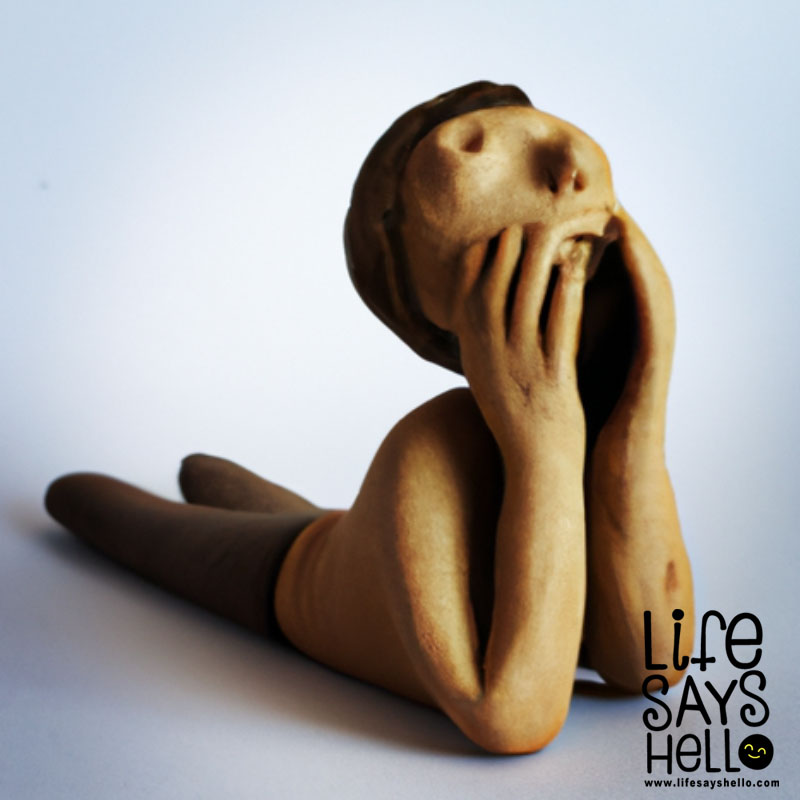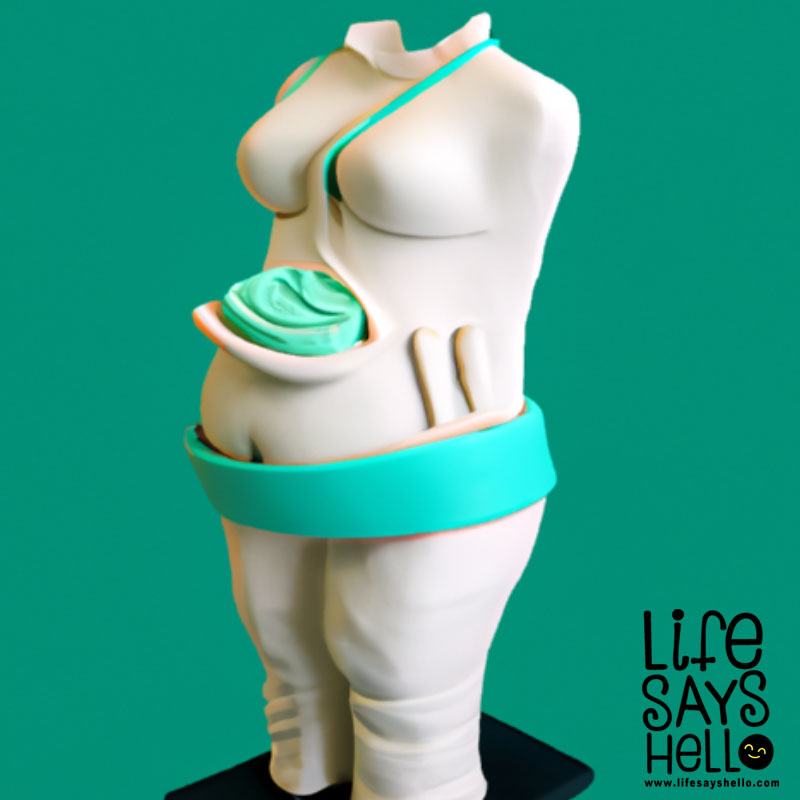Why Are My Periods So Heavy? Causes and Treatments for Heavy Menstrual Bleeding

Do you find yourself changing your pad or tampon frequently during your period? Are you passing large blood clots or soaking through a pad or tampon in an hour or less? If so, you may be experiencing heavy menstrual bleeding, also known as menorrhagia.
Heavy periods are a common problem that affects many women at some point in their lives. If you're dealing with heavy menstrual bleeding, know that you're not alone. Read on to learn about the common causes of heavy periods, both medical and natural treatment options, and when it's time to see your doctor.
What is Heavy Menstrual Bleeding?
Heavy menstrual bleeding is defined as excessively heavy or prolonged menstrual bleeding that occurs regularly and interferes with a woman's physical, social, emotional, or material quality of life. The medical term for heavy periods is menorrhagia.
During a normal period, women lose around 2 to 3 tablespoons of blood over the course of several days. With heavy bleeding, women may lose double that amount or more during their periods. Other signs of heavy menstrual bleeding include:
- Bleeding that lasts longer than 7 days
- Needing to change pads or tampons frequently, such as every 1-2 hours
- Passing large blood clots, the size of a quarter or larger
- Waking up to change pads or tampons during the night
Heavy bleeding can result in more than just inconvenience though. It can lead to iron deficiency anemia if left untreated, causing symptoms like fatigue, pale skin, dizziness, and shortness of breath. Heavy periods can also impact quality of life, making it difficult to work, exercise, and attend social events.
If heavy bleeding is something new for you or is interfering with your daily activities, it's important to see your doctor. But what causes heavy periods in the first place? Let's look at some of the most common culprits.
Common Medical Causes of Heavy Menstrual Bleeding
There are several medical conditions that can cause heavy menstrual bleeding. Some of the most common include:
Hormone Imbalances
Our menstrual cycles are regulated by a complex balance of hormones, including estrogen and progesterone. These hormones control the buildup and shedding of the lining of the uterus (endometrium) during menstruation.
If a hormone imbalance occurs, the endometrium may grow excessively thick and eventually shed in an abnormally heavy flow. There are many reasons this hormone imbalance can occur, including:
- Polycystic ovary syndrome (PCOS)
- Thyroid disorders
- Pituitary disorders
- Premature ovarian failure
Progesterone helps counterbalance estrogen's role in thickening the endometrium. Low progesterone levels can allow the endometrium to thicken excessively, resulting in heavy bleeding.
Uterine Fibroids
Uterine fibroids are noncancerous growths that develop from the muscle tissue of the uterus. Also called leiomyomas or myomas, uterine fibroids are very common, affecting 70% of women by age 50.
Fibroids can range in size from microscopic to several inches wide. Their location in the uterus and size can determine whether they contribute to heavy menstrual bleeding. Submucosal fibroids that grow just under the uterine lining (endometrium) are most likely to cause heavy bleeding.
As women approach menopause, fibroids often shrink due to decreasing estrogen levels. But in some cases, they may cause abnormal bleeding leading up to menopause.
Polyps
Endometrial polyps are benign, elongated growths that attach to the inner lining of the uterus. They range in size from a few millimeters to several centimeters. Polyps are more common as women get older, with the highest incidence in women 40-50 years old.
Polyps are one of the most common causes of abnormal uterine bleeding. Like fibroids, they can disrupt the normal shedding of the endometrium, leading to heavy menstrual bleeding.
Adenomyosis
This condition occurs when the endometrial tissue that normally lines the uterus grows into the muscular wall of the uterus. This can cause the uterus to enlarge and expand, resulting in heavier, prolonged menstrual bleeding and painful menstrual cramps.
Adenomyosis often occurs in middle-aged women and those who have had children. An estimated 20-35% of women may have adenomyosis.
Medications and Birth Control
Certain medications and forms of birth control can sometimes increase menstrual bleeding. These include:
- Blood thinners, like warfarin, heparin, or aspirin, which can thin the blood and increase bleeding
- Intrauterine devices (IUDs), which may initially cause heavier bleeding for the first 3-6 months after insertion
- Birth control pills, especially extended cycle or continuous use pills which can lead to irregular bleeding
Make sure your doctor knows about all medications and supplements you're taking, even over-the-counter ones. Discuss any changes in bleeding patterns after starting new medications or birth control.
When Should I See My Doctor About Heavy Periods?
If you are experiencing heavy menstrual bleeding, especially if it's something new for you, it's important to make an appointment to see your doctor. You should also see your doctor if heavy bleeding is:
- Causing you to double up on pads/tampons or change them frequently
- Lasting longer than 7 days
- Causing you to feel dizzy or extremely fatigued
- Interfering with work, school, exercise or your normal activities
Diagnosing the underlying cause of heavy periods starts with your doctor taking a full medical history and performing a pelvic exam. They may ask questions about your periods, such as:
- When did the heavy bleeding start?
- How many pads/tampons are you going through?
- Are there clots? How large?
- Any changes after starting new medications or birth control?
- Do you have symptoms like pain, cramping, or pressure?
Your doctor can use this information to determine if there are any red flag symptoms that need quick attention. They may also run blood tests to check for anemia and hormone levels.
Further testing may include:
- Ultrasound - Uses sound waves to examine the reproductive organs and look for fibroids, polyps, or other abnormalities.
- Hysteroscopy - A thin camera on a tube is inserted into the uterus allowing doctors to visually examine the uterine cavity.
- Endometrial biopsy - Takes a small sample of the uterine lining to examine under a microscope. This checks for cell changes, cancer, or conditions like adenomyosis.
Once the underlying cause is found, your doctor can recommend the most appropriate treatment options.
Medical Treatment Options for Heavy Periods
If your heavy menstrual bleeding is caused by a treatable medical condition, there are many medication and procedural options available. Your doctor will help determine which options may be best for your individual situation. Some of the most common medical treatments for heavy periods include:
Medications
Several medications can help reduce heavy menstrual bleeding:
NSAIDs - Non-steroidal anti-inflammatory drugs like ibuprofen (Advil, Motrin) or naproxen (Aleve) can help reduce prostaglandins and decrease menstrual blood flow.
Tranexamic acid - This antifibrinolytic medication helps blood clot and reduces heavy menstrual bleeding. It's often taken just during menstruation.
Oral contraceptives - Birth control pills that contain estrogen and progestin help stabilize the endometrium and regulate menstrual cycles. This often reduces heavy bleeding and cramping.
Progestins - Progesterone or progestins counteract estrogen's effects on the endometrium. They can help correct hormone imbalances and reduce heavy bleeding.
Gonadotropin-releasing hormone (GnRH) agonists - These stop ovulation and can be used short-term to improve bleeding before fibroid surgery.
When choosing medications, your doctor will consider your health history, future pregnancy plans, and risk of side effects. Be sure to discuss all your options.
Procedures
If drug therapy is not effective for you, minimally invasive procedures may provide relief from heavy periods. Some options include:
Endometrial ablation - This procedure destroys the lining of the uterus to reduce menstrual bleeding. It's one of the most common procedures for heavy periods.
Uterine artery embolization - Tiny particles are injected to block the blood vessels supplying the uterus. This cuts off the blood flow causing fibroids or polyps to shrink.
Myomectomy - Fibroids are surgically removed while leaving the uterus intact. This may be an option if you want to preserve fertility.
Hysteroscopy - A thin tube with a camera can be used to see inside the uterus and remove polyps or fibroids.
Hysterectomy - Surgical removal of the uterus provides a permanent solution for heavy bleeding. It's usually a last resort option.
Discuss risks, side effects, and implications for future fertility with your doctor before any procedure.
Natural Remedies to Help Manage Heavy Periods
For some women, natural remedies may help provide relief from heavy periods without the need for medications or procedures. However, it's important to talk to your doctor before trying any new treatments. Here are some natural remedies that may help ease heavy menstrual bleeding:
Stay Hydrated
Drinking plenty of water and staying hydrated is important for maintaining blood volume. Dehydration can make menstrual bleeding seem heavier. Aim for 8-10 glasses of water daily. Coconut water, fruit infused water, and herbal teas are great options too.
Eat a Nutritious Diet
Eating a balanced diet high in iron, vitamin C, and other nutrients can help replace what’s lost during heavy bleeding. Focus on eating more:
- Dark leafy greens like kale, spinach
- Beans, lentils
- Soybeans, tofu
- Fruits like oranges, strawberries, kiwi
- Nuts and seeds
- Red meat, chicken, fish
- Enriched breads and cereals
Apply Heat
Applying heating pads and hot water bottles to your lower abdomen can help relax cramped muscles and stimulate blood flow. This helps ease pain and reduce heavy bleeding. Taking warm baths can also provide comfort.
Consider Herbal Remedies
Some herbs like turmeric, ginger, and cinnamon have anti-inflammatory properties that may help reduce heavy menstrual bleeding. Speak to your doctor before taking any herbal supplements.
Exercise Regularly
Low-impact exercise like yoga, pilates, and walking can help reduce stress and promote circulation. This may help regulate menstrual cycles and reduce heavy bleeding over time.
Use Menstrual Cups or Period Underwear
Menstrual cups and absorbent period underwear hold more blood than pads or tampons. They can help manage heavy flow on heavy days with less risk of leakage.
When to See Your Doctor About Heavy Bleeding
It's always a good idea to discuss heavy menstrual bleeding with your doctor so the cause can be properly diagnosed and treated. Seek urgent medical care if you experience:
- Bleeding that soaks through a pad or tampon every hour for multiple hours
- Passing blood clots larger than the size of a golf ball
- Feeling dizzy, lightheaded, or extremely fatigued from blood loss
- Bleeding that lasts longer than 7 days
If you are concerned about any symptoms of heavy bleeding, don't delay in seeing a doctor. They can provide the most appropriate treatment options for your situation.
Conclusion: See Your Doctor to Determine the Cause
Heavy menstrual bleeding is a common problem affecting many women. The excessive blood loss can cause anemia, fatigue, and negatively impact quality of life. If your periods have suddenly become heavier, see your doctor to determine the underlying cause.
Hormonal imbalances, uterine fibroids, polyps, adenomyosis, and medications are some contributing factors of heavy periods. Once properly diagnosed, many effective treatment options are available. Your doctor can help determine if medications, minimally invasive procedures, or natural remedies may provide the best relief.
Don't resign yourself to just dealing with extremely heavy periods. See your doctor to explore the options available so you can get back to comfortably enjoying life.




Comments